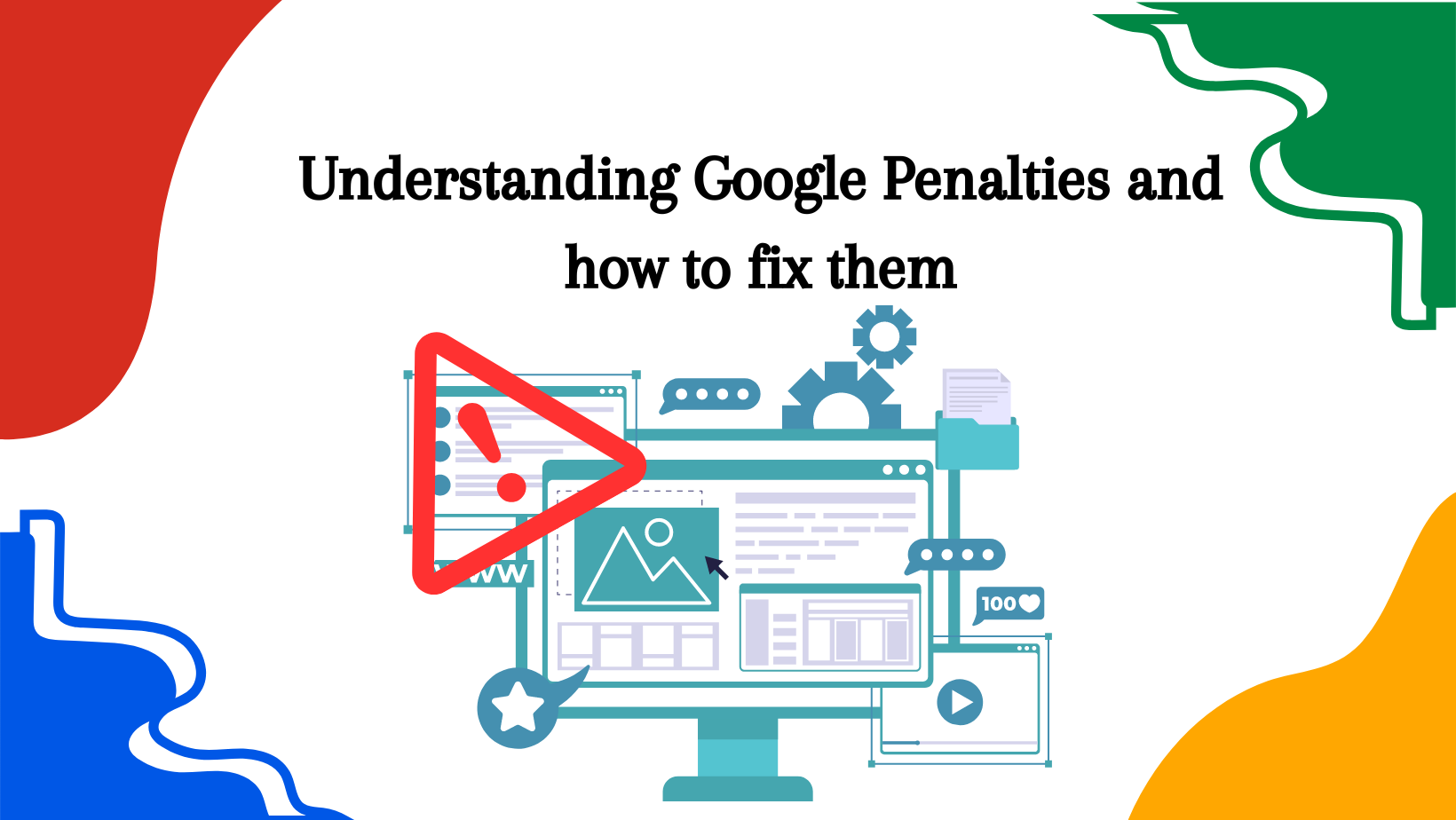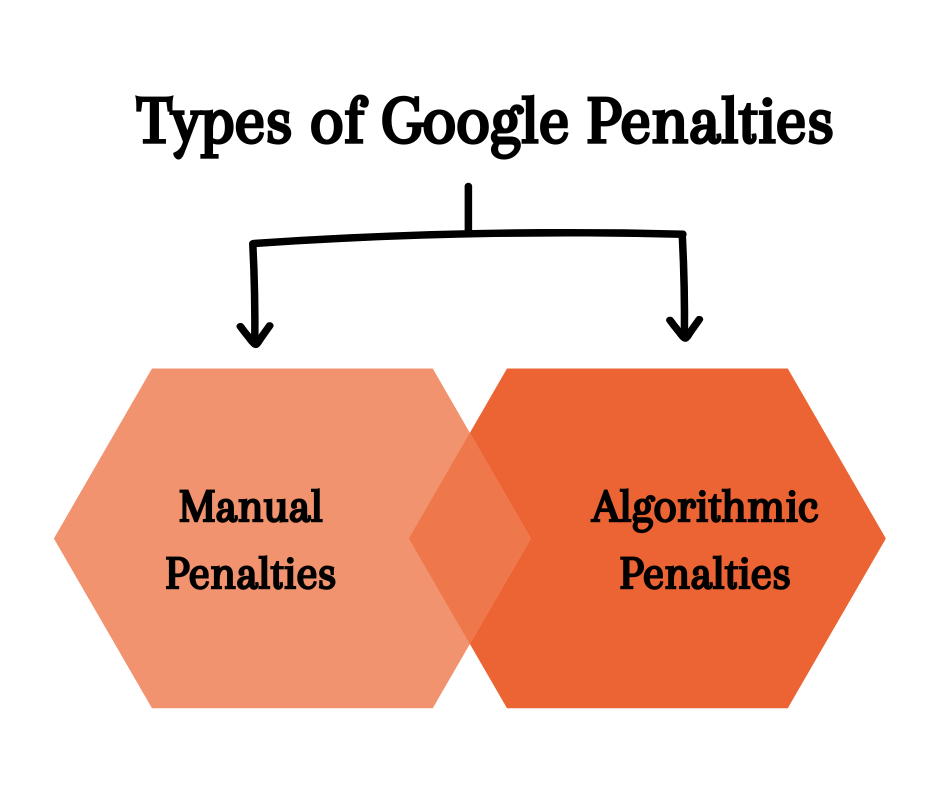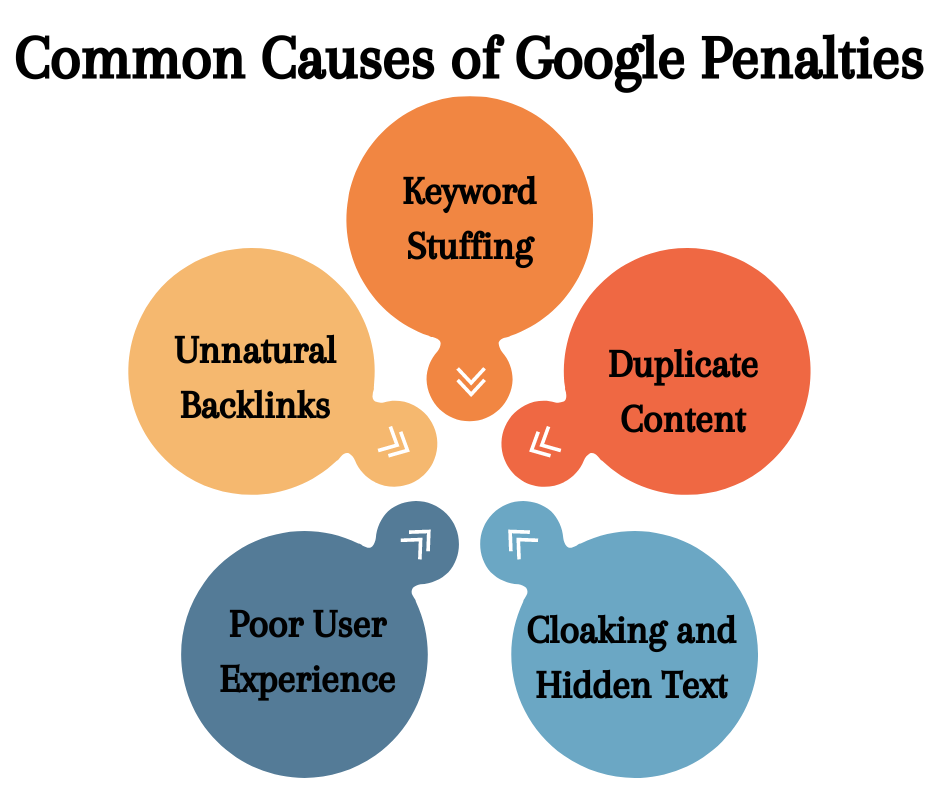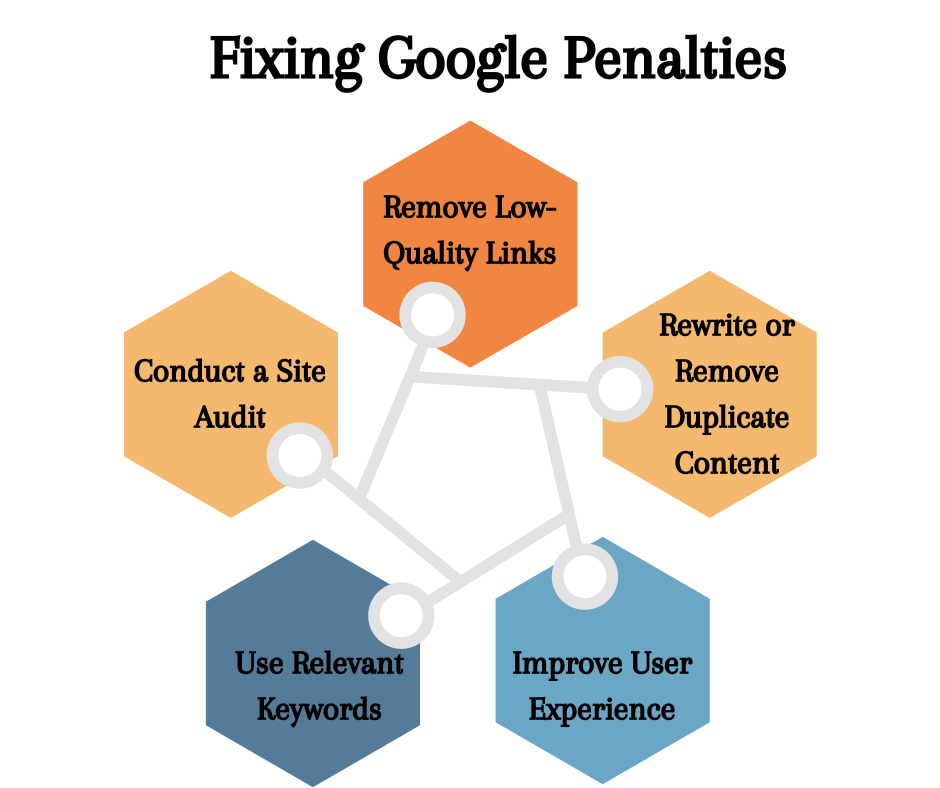In today’s digital age, having a good online reputation is very important. With the internet being the go-to source of information for many people, it’s essential to maintain a positive image online, especially for individuals and businesses. Your online reputation can significantly impact your business.
A good online reputation can help you establish trust, credibility, and authority with your audience, while a bad one can tarnish your reputation, damage your credibility, and even harm your career or business.
It’s crucial to monitor your online presence, actively engage with your audience, address negative feedback, and take the necessary steps to improve your online reputation.
Remember, your online reputation is not just about what you say or do online, but also what others say about you. So, it’s essential to Understand Google Penalties and how to fix them.

Page Contents:
What Are Google Penalties?
Google penalties are actions taken by Google against websites that violate its guidelines or use unethical practices to manipulate search engine rankings.
These penalties can result in a drop in search engine rankings, decreased organic traffic, and even removal from the search engine results pages (SERPs).
Google penalties can be algorithmic or manual, and they can target specific pages or an entire website. Algorithmic penalties are triggered by Google’s algorithms, while manual penalties are imposed by Google’s human reviewers.
The most common reasons for Google penalties include keyword stuffing, cloaking, link schemes, duplicate content, and spammy or low-quality content.
As a website owner, it’s crucial to avoid these practices and follow Google’s guidelines to avoid penalties that can harm your website’s visibility and reputation.
Types Of Google Penalties
Google penalties are the actions taken by Google to penalize websites that violate its guidelines. These penalties are classified into two types: Manual Penalties and Algorithmic Penalties.
Manual Penalties are issued by Google’s webspam team manually. The team reviews websites that have violated Google’s guidelines and decides to issue a penalty accordingly. The penalties can range from a decrease in rankings to complete removal from Google’s search results.

Algorithmic Penalties, on the other hand, are issued automatically by Google’s algorithms. These penalties are triggered when a website is found to be violating Google’s guidelines, and the algorithms are designed to detect such violations.
The penalties can result in a decrease in rankings or even complete removal from Google’s search results.
It is important for website owners and webmasters to be aware of these penalties and to ensure that their websites comply with Google’s guidelines to avoid being penalized.
Common Causes of Google Penalties
Google penalties are a major concern for website owners and digital marketers alike. These penalties can significantly impact a website’s search engine rankings, leading to a decrease in organic traffic and revenue.
To avoid such penalties, it is crucial to understand the common causes of Google penalties and take proactive measures to prevent them.
1. Unnatural backlinks
One of the most common causes of Google penalties is the presence of unnatural backlinks. These are links that come from low-quality or irrelevant websites, or those that have been manipulated in some way to increase their authority. Such links are considered spammy by Google and can lead to a penalty.
2. Duplicate content
Another cause of Google penalties is duplicate content. This refers to content that is copied from another website or even from within the same website. Duplicate content can confuse search engines and cause them to penalize the website for not providing original and valuable content.
3. Keyword stuffing
Keyword stuffing is another common cause of Google penalties. This refers to the practice of using too many keywords in a piece of content in an attempt to rank higher in search engines. This is considered a black hat SEO tactic and can lead to a penalty.

4. Cloaking and hidden text
Cloaking and hidden text are also causes of Google penalties. Cloaking refers to the practice of showing different content to search engines than what is visible to users.
Hidden text refers to text that is invisible to users but is present on the website for search engines to see. Both of these practices are considered deceptive and can lead to a penalty.
5. Poor user experience
Lastly, poor user experience is another cause of Google penalties. This includes slow page loading times, broken links, and unresponsive design, among other factors. Websites that offer a poor user experience are less likely to be ranked highly by Google, leading to a penalty.
Therefore, it is important to address these common causes of Google penalties to avoid negative impacts on your website’s search engine rankings.
Identifying A Google Penalty
When it comes to Google penalties, there are three main ways to identify them. The first is a drop in website traffic, which can indicate that your site has been penalized by Google’s algorithm.
The second way is through a manual penalty notification, which means that Google has identified that your site has violated its guidelines and has taken manual action against it.
Finally, there is the algorithmic penalty, which is a penalty that is applied automatically by Google’s algorithm based on certain factors such as low-quality content or spammy backlinks.
It’s important to be aware of these penalties and take action to remedy them as soon as possible to avoid any negative impact on your website’s search engine rankings.
Fixing Google Penalties
If your website is currently facing Google penalties, there are several steps you can take to fix the issue. First, conducting a thorough site audit is crucial to identify the root cause of the problem. This audit should cover technical SEO issues, on-page SEO elements, and off-page SEO factors.
Once the audit is complete, removing low-quality links is a key step to take. This can be done by reaching out to the website owners and requesting them to remove the links or by using Google’s disavow tool. Additionally, rewriting or removing duplicate content is another important step to take to avoid penalties.

Using relevant keywords is also crucial to ensure that your website’s content is optimized for search engines. This can include conducting keyword research to identify the most relevant and high-performing keywords for your industry and incorporating them into your website’s content.
Finally, improving user experience is also essential to avoid penalties. This can include ensuring that your website is mobile-friendly, has fast loading speeds, and is easy to navigate. By taking these steps, you can fix Google penalties and improve your website’s search engine rankings.